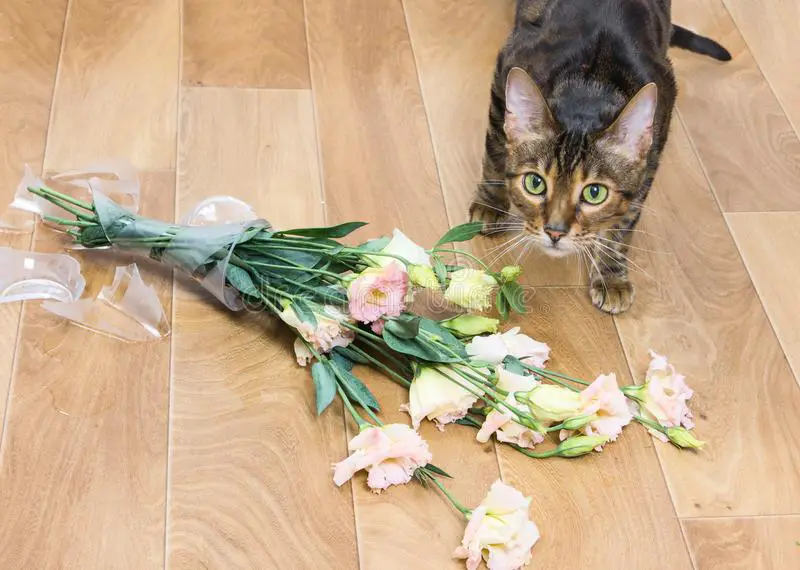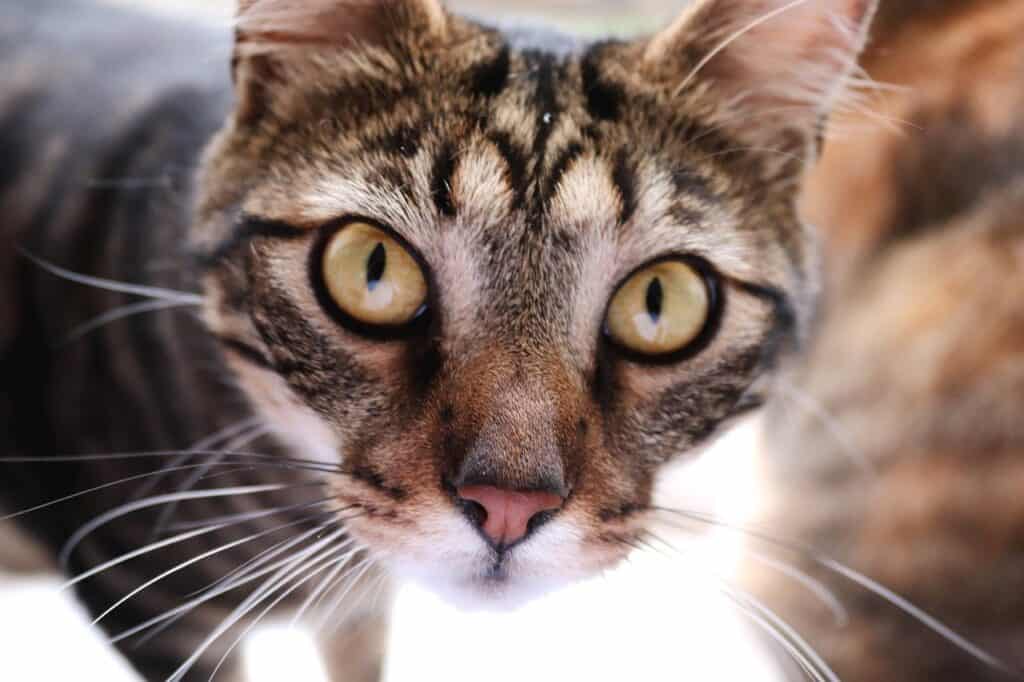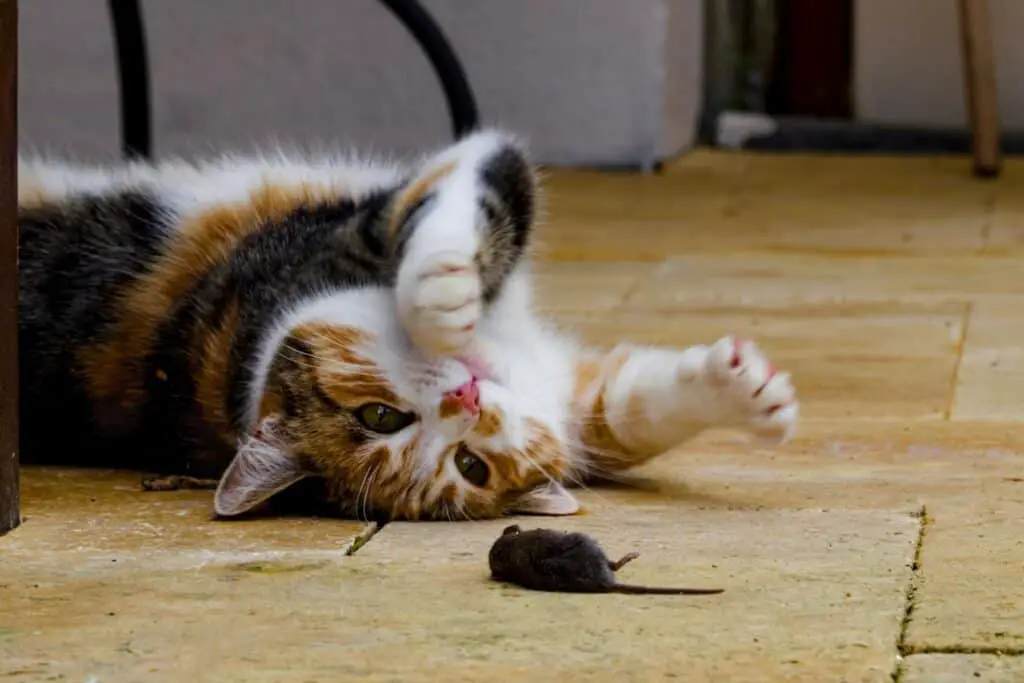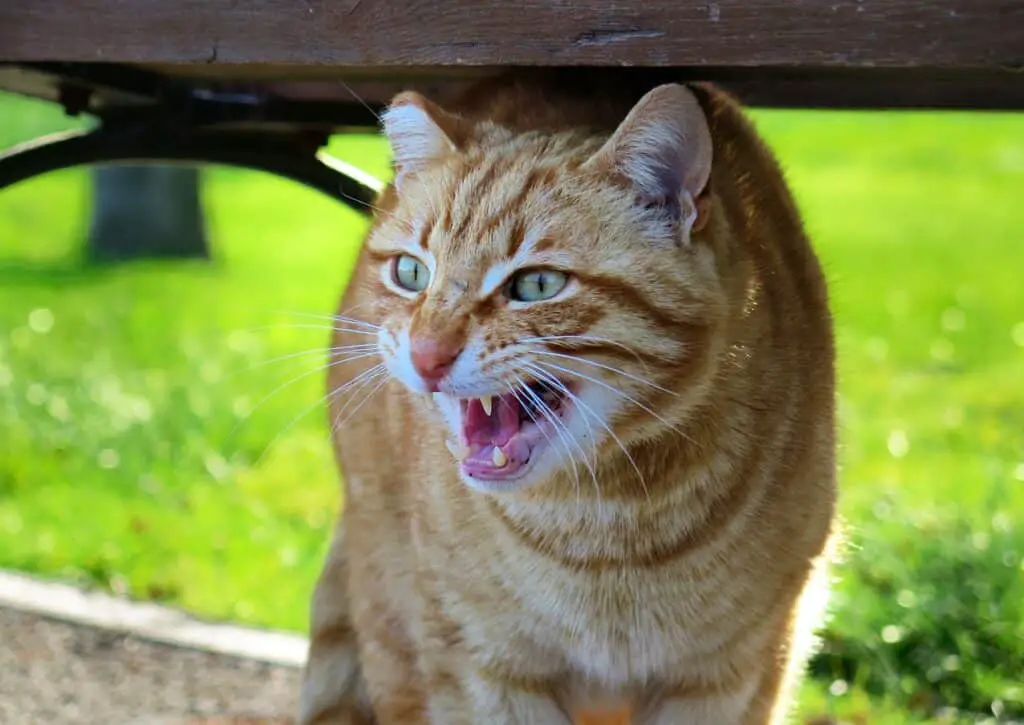A cat is a mysterious animal with its little quirks. Sometimes their odd behavior might irritate us or even cause anger or disappointment towards your feline friend. Does your cat know when you’re angry at them and how do they apologize for their behavior?
Cats apologize when they sense that their owner is angry at them or disappointed by something they did. Cats want to remain in good standing with their social group, whether in the wild or our families. Being sensitive to mood and body language, they will try to make things right by giving us attention, head-boops, or blink-eyes.
How do cats say they’re sorry?
After your furry friend figured out that you’re angry with her, she will often try to clear the air and try to become friends again.
Don’t expect any long-winded apologies from your cat but rather a gesture where they show you a sign of affection or acknowledgment.
We already know that cats are masters of non-verbal communication, and a cat trying to say ‘sorry’ is no different.
What behavior will cats display to apologize?
- Give you attention and approaching you (acknowledgment)
- Purring in your vicinity while trying to make eye contact
- Blinking their eyes slowly at you (a sign of cat affection)
- Giving you head-boops or rubbing against you
- Offering you a small present
Do cats know when you’re angry at them?
Most of the time, cats live in their little world. They don’t care too much about what goes on around them or what others think about them.
A cat will do whatever they think is right or fun at that moment without considering how that will make you feel.
This why, for example, they think it is perfectly normal to rip into your sofa to sharpen their nails.
Cats do not consider cause and effect in the same way that we humans do. Meaning that their reasoning is not something like, “if I break this priceless vase, my owner will be mad at me because it’s precious to her”.
Instead, they will go ahead and tip over the vase because they feel like it, without considering your feelings.
This doesn’t mean that cats are uncaring animals. They do care about their standing to their owners and their place in the group.
After the fact, your cat will sense that something is different in your relationship with her, and she might wonder why you’re distant and annoyed with her.
Believe it or not, cats pick up on these emotions because they are very good at picking up non-verbal cues, reading our facial expressions and body language, and sense a tense atmosphere.
They will understand that you are angry about something. What happens next is depending on your cat’s personality. They might avoid you for a while until it blows over or they will display apologetic behavior and approach you to make up for it.
Why would cats want to apologize?
Although cats are perfectly fine living on their own, it’s not uncommon for them to live in groups. This is often seen in the wild and, of course, with feral cats.
When living in a group, cats submit to different social standards and are concerned with their place in the group (hierarchy) and how other group members perceive them.
For cats living with people, the same applies. They might even see you as the leader of the group. Because of their social structure, they need to be in good standing with the group leader (or pet owners).
If they feel they have crossed a line and did something to tick you off, they will put in the effort to make things right and apologize to you. Even if they don’t exactly know (or care) what it is they did wrong.
That said, if they don’t necessarily see you as the leader of the pack or they think that they themselves are in that position, an apology will probably not come.
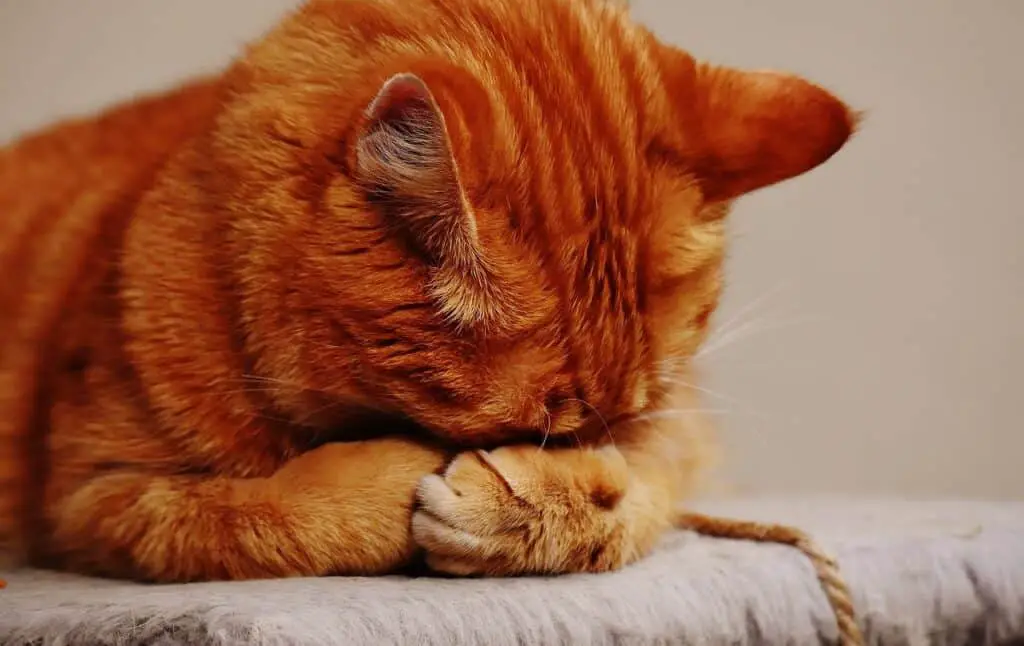
How to accept your cat’s apology?
When your cat shows remorse, it’s best to accept their attempt to apologize by petting them, saying soothing words, or giving them a snuggle.
Cats are very sensitive creatures, and when they feel you stay angry at them, it will cause them stress. They might start avoiding you if it happens often or if you stay mad for a long time. Doing this will risk the delicate balance in your relationship with your furry companion.
How to discipline your cat?
On the other hand, it’s perfectly fine to give your cat a ‘time-out’ if they did something that upset you. The key is to be consistent with it.
So, for example, if you want to punish your cat for scratching your couch, place him outside of the room, by himself.
Doing this consistently will have the desired effect because it’s clear that your cat is placed outside of the group following a particular behavior. This is a powerful signal that wild animals even use to punish a group member.
The ideal duration of the time-out depends on the offense and on what works with your cat. We would advise you to start with 10-15 minutes and take it from there.
Maintaining the time-out for too long might harm your cat’s behavior or lose the impact altogether.
Should cats apologize to us in the first place?
It’s an interesting question whether or not cats owe us an apology in the first place.
We should not forget that cats (under normal circumstances) do not have malicious intent; they are not out to do bad things. Especially if the both of you have an affectionate relationship they will do these things on purpose.
Cats are just cats and it is normal cat behavior to be naughty from time to time.
Often their actions have a reason, though. For example, when they scratch up your couch, it’s because their nails get too long and perhaps you should provide a suitable alternative.
When they pee outside of their litterbox, maybe it needs to be cleaned, or they haven’t been appropriately trained to use it. Often peeing outside the designated places may also be a sign that something else is wrong.
Always try to ask yourself why your cat is exhibiting certain behavior. Is it something that you can explain or avoid with some adjustments?
Cats cannot just talk to us so we need to listen by looking at their behavior and not directly punish them when they do something wrong.
At the end of the day, providing for your pet will enrich both your lives and the relationship between you and there won’t even be a need for your cat to apologize to you.
That doesn’t mean that you, as a cat-parent, should simply accept every and all bad behavior from your cat.
It is perfectly fine to set clear boundaries and let them know when they crossed a line. Be clear and consistent about it, and your cat will become well-mannered and learn to behave.
Final thoughts
Bringing a cat into your home, or any pet for that matter requires adjustments from everyone in the household. Especially with younger animals and kittens, you need to invest the time into their upbringing.
That does not mean that you only show them where the litterbox is and feed them. It requires a time investment from your end, just like with a human child. Cats are low maintenance, but they do need to have boundaries and rules in place.

